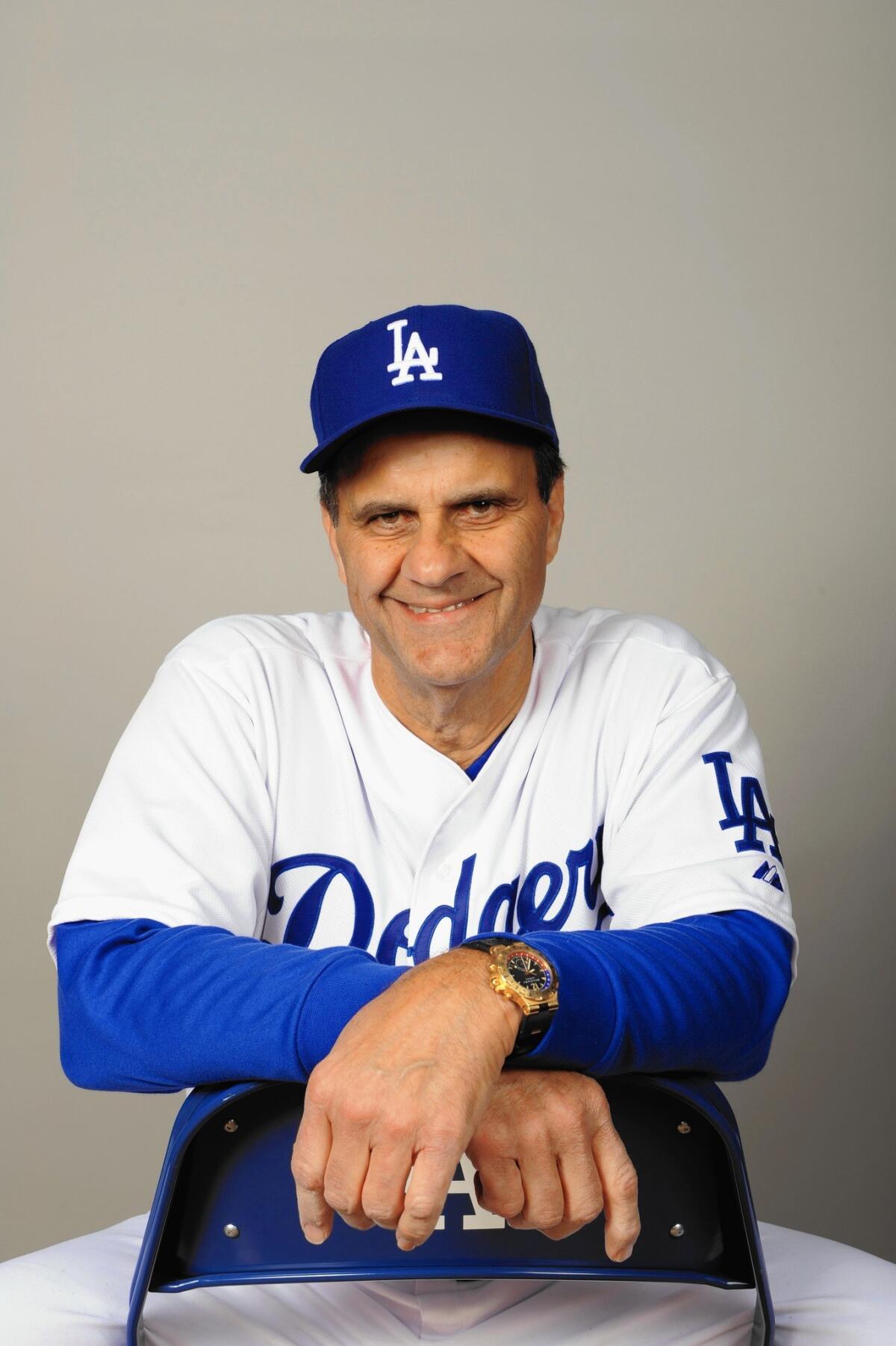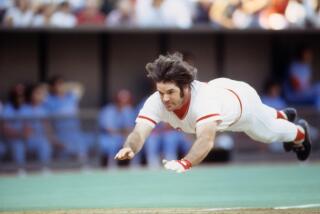Q&A: Baseball’s Joe Torre hits a home run with his charity work

- Share via
Joe Torre’s days on the field are over, but at 74 the former Dodger and Yankee manager and 2014 Hall of Fame inductee is as busy as ever. Along with a full-time job as executive vice president of baseball operations for Major League Baseball, he and wife Ali run the Joe Torre Safe at Home Foundation, which they founded in 2002 to help people experiencing domestic violence, as he did while growing up. The foundation, which operates a dozen centers called Margaret’s Place, for Joe’s mother, was set to hold a fundraiser in Los Angeles on April 30. A prostate cancer survivor and advocate for cancer education since 1999, Torre also has recently become the celebrity spokesman for the Your Prostate Your Decision campaign. Here he talks about managing his fitness and his charity endeavors.
You did it all in baseball — MVP as a player, four World Series titles as a Yankee manager — yet you say you suffered from a lack of confidence for most of your career. Why?
I didn’t see the connection until I was in my 50s, but being brought up in a house where my dad abused my mom created a lot of fear and lack of self-esteem. I didn’t even go out for the baseball team in my freshman year in high school because I was afraid I wasn’t going to make it. I had no confidence in myself. And I went through my playing career going through a lot of hills and valleys based on my performance that particular day. Obviously, to validate myself, to be worthy, I had to get hits. It was like a life-or-death thing for me. It wasn’t a good feeling. I was very moody. Then, in 1995, age 54, I started to get over it.
What happened?
I went to a four-day self-help seminar with my wife, Ali, then pregnant with our fourth child. On Day 3, they separated us, and I found myself standing there crying my eyes out. Now here I am, just been named the manager of the Yankees, in front of a group of six strangers, pouring out my soul, when I realized that there was a connection between my feeling inadequate and the fear my dad created in the house, which I had never told anyone about, not my best friend, not my wife. Why not? I was ashamed.
It wasn’t that I was mad at my father. It’s that I realized that I wasn’t born with these bad feelings and the shame — they were created by the fear. Ali and I had always done volunteer work throughout my career, so I knew that I wanted to help kids who might have been in the same boat, seeing abuse and afraid to talk about it. Several years later, in New York, Ali and my oldest daughter, Christina, a Montessori teacher, helped me set up Margaret’s Place. We put a counselor in “safe rooms” in schools to help these kids. To date, almost 50,000 kids have been through the program.
When did you know it would be successful?
Right away. I remember walking into a school in the Bronx where we were going to put on our first fundraising dinner, and I said to the youngsters, “We’ll talk about baseball in a minute. I want to explain what this camera crew is for.” When I explained about my dad and watched six or eight kids just shake their heads up and down, as if to say, “I know what you’re talking about,” I realized that we struck a nerve.
Is there a similar reluctance to talk about prostate cancer?
Yes, which is why being a high-profile person helps; you draw attention to a cause, and you also get more help. My wife said it probably was a good thing that I didn’t retire in 1998 after we won the World Series against the San Diego Padres, because otherwise no one would have known about my prostate cancer. I was 58 when diagnosed with an aggressive form in early 1999. They used me as a role model. I’d tell them, as I do in the [public service announcments] today, that there are a lot of options — like genomic testing and active surveillance — besides surgery available today, so slow down and make an informed decision.
People always talk about diet and exercise as the key elements of health. Should charity work be in that mix?
I think so. A healthy body thrives in a healthy society. I work out about five days a week, alternating days of boxing with a trainer and 45 minutes of cardio, and eat a low-fat diet with no fried foods or red meat, mainly fish, beans, some chicken, lots of vegetables. As for the charity work, there’s a sense of responsibility on us to make sure the future of our world is going to be in good hands by talking care of the kids who are going to be there for us. A big part of it is putting your arm around somebody’s shoulder and letting them know that you care about them.
More to Read
Go beyond the scoreboard
Get the latest on L.A.'s teams in the daily Sports Report newsletter.
You may occasionally receive promotional content from the Los Angeles Times.










